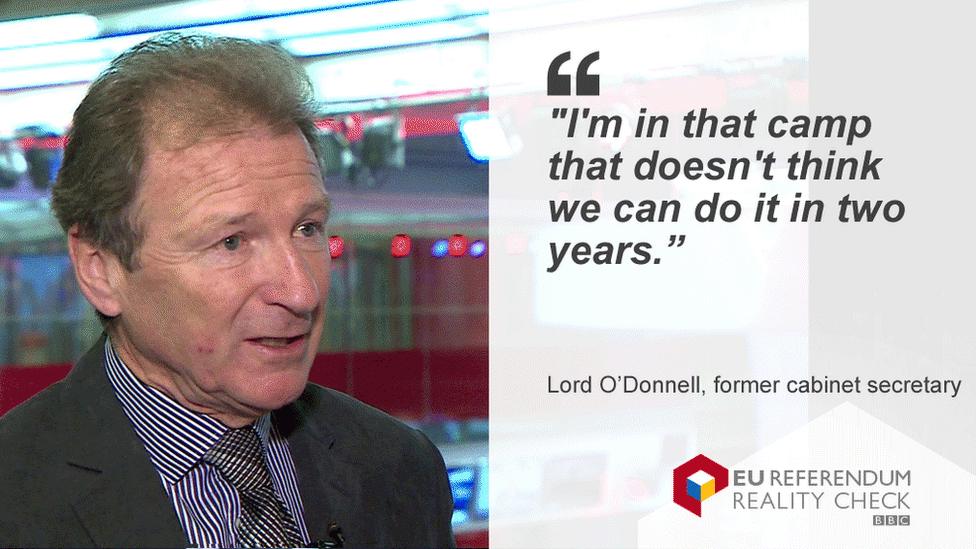Reality Check: Could Brexit be negotiated in two years?
- Published

A leave vote on 23 June would not immediately part the UK and the European Union.
First, they would have to decide what their relationship would be like in the immediate future.
Once Britain formally tells the European Council it is leaving, it has two years to negotiate the terms of its withdrawal. Extra time would only be allowed if the remaining 27 states all agreed.
Lord O'Donnell fears complex talks would take much longer than that, and if the EU refused an extension to the negotiating period, the UK could face higher trade tariffs.
But - the clock would only start once Britain formally notified the European Council.
While David Cameron says voters would expect the process of leaving to begin straight away, he could delay and negotiate informally in the meantime.
Britain could technically even ignore all of this, the Vote Leave campaign says, and simply write the EU out of its laws, although that wouldn't make future negotiations any easier.
At the heart of this debate, then, is a question: how successful would British negotiators be at doing a deal with the EU, both for a short-term agreement to part, and a longer term trade settlement?
Take one view, and you think complicated talks would take many years and, as the government argues, lead to a decade or more of uncertainty.
Take another, and you think a huge - and hugely important - economy like Britain's is one with which the EU needs to do business, and so could extract an excellent deal.
Reality Check verdict: Without a crystal ball, neither side can be certain their hopes, fears or forecasts will turn out to be true.


READ MORE: The facts behind claims in the EU debate

- Published22 February 2016

- Published30 March 2016

- Published24 March 2016

- Published24 March 2016

- Published22 March 2016

- Published22 March 2016

- Published18 March 2016
